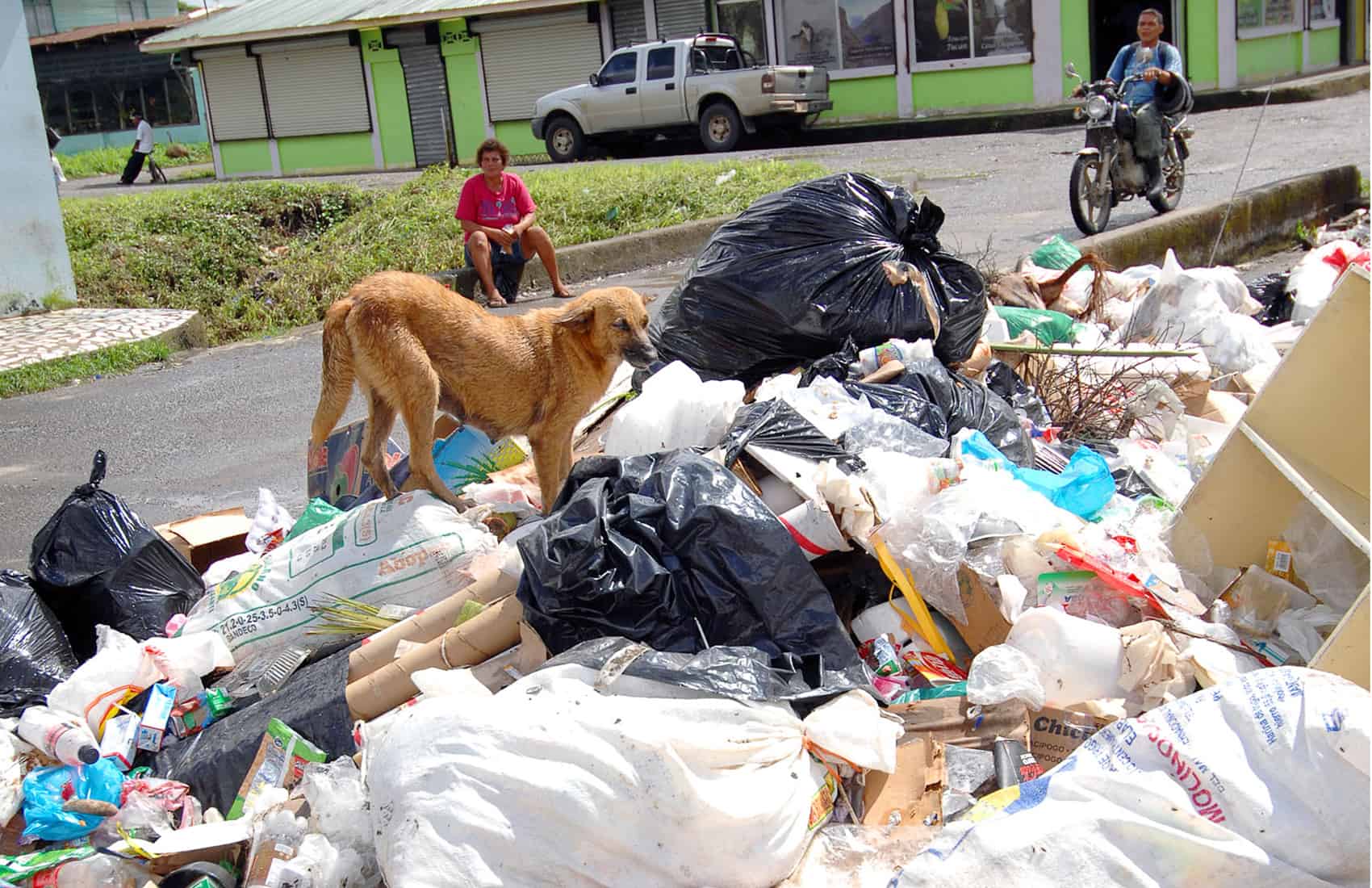Pilot project Enlazando Manos (Weaving Hands) is an innovative initiative turning post-industrial waste into treasure. With the guidance of San José-based sustainability consulting company Ecoglobal, a group of women from Cartago, east of the capital, are now giving post-industrial waste new life by resurrecting it into fashionable purses, handbags, belts, water bottle holders and wallets.
The registered trademark name for their remarkable creations is Ule Kirá, which means “together we are stronger” in the indigenous Chiriquí dialect, according to Ana Quirós, director of Ecoglobal.
The program began with a vision by Quirós, who saw a bag woven from polypropylene waste from Mexico at a conference in 2005. Since then, she has worked to propel the inspiration into reality. Today, 10 Cartago women are now weaving with the pilot project, and a community in Guatemala has expressed interest in expanding the reach of the program.
Post-Industrial Innovation
The packaging material known as polypropylene revolutionized food storage, allowing long-distance transport and long shelf life. The material’s durability also makes it extremely difficult and expensive to recycle because it requires the disassembling of the fused materials, namely plastic and aluminum. The material comprises an increasing amount of waste in landfills.
A portion of that waste goes to landfills before it is ever used to store food. Packaging factories discard unusable polypropylene material spent on badly cut or badly printed mistakes, test runs and maintenance. These discarded materials are known as postindustrial waste. In the spirit of “using what would be thrown away,” Enlazando Manos accepts polypropylene donations from companies such as Alimentos Jack’s, saving tons of polypropylene waste that would otherwise be destined for one of Costa Rica’s already taxed landfills.
Designer Freddy Pérez creates original designs from these products that require hundreds of woven units, depending on the size of the item. He then trains the women, who weave the products out of their homes in Cartago. They gather once a month to learn new techniques and designs, and to distribute orders for items.
“It’s more than just training in the designs,” Pérez says. “It’s also about motivating the weavers.”
Raquel Masís, 18, from the neighborhood of Cot in Cartago, weaves at home with her mother. She says the experience has taught her “how to be more united, and become less fearful in order to succeed.” She says the project also brings in additional monthly income to pay bills and household necessities.
Conception to Resurrection
Enlazando Manos was born from the concept of life-cycle analysis, a scientific, objective method of determining the cycle of a product and then weighing and prioritizing its environmental, social and economic impacts. The concept of a product life cycle “allows us to evaluate our decisions based on scientific process,” Quirós says.
“We look at a product through the entire process, from its conception to how it will be resurrected.”
Quirós coined and advocates the idea of “conception to resurrection” in life-cycle analyses, emphasizing possibilities for rebirth of discarded materials, she says.
Energy is used at every step of making and unmaking a product; energy is used to create the material, and more energy is used to break it down again into usable parts.
“Use and reuse is better than recycling,” Quirós says. “It should be the last option before throwing away.”
With Ecoglobal the driving force behind the program, the pilot gives thanks to the donations and collaboration of various entities, including the Association for Life Cycle Analysis in Latin America (ALCALA), the Swiss Embassy, Gente Reciclando (People Recycling) and the NationalCenter for Cleaner Production. A handful of professionals donated their skills as lawyers, artists and designers.






